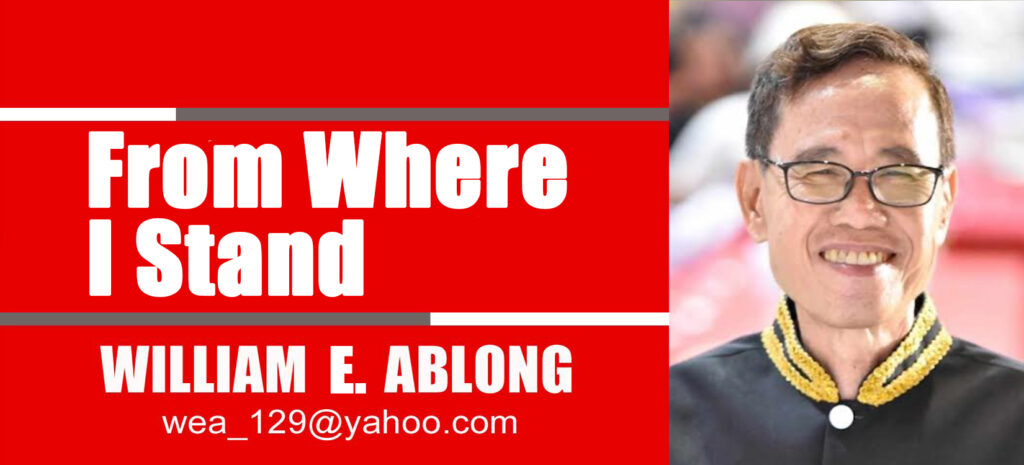
AS the years have gone by, one undeniable trend has become increasingly apparent: the violation of the election code has risen dramatically, and with it, the cost of running for office. These issues, though often swept under the rug, have far-reaching consequences on the integrity of the electoral process and the very fabric of democracy.
The Pre-Campaign Campaigns
Gone are the days when the official campaign period was the only time candidates could begin their electoral push. Now, politicians have found ways to circumvent these rules, often starting their campaigns long before the legal start date. Election materials—ranging from posters to banners—are already being distributed, and it’s not just about printing these materials anymore. A significant amount of money goes into paying individuals to put up these posters everywhere, ensuring that the candidate’s name is plastered in as many places as possible, effectively setting the stage for an unofficial campaign before the official one even begins.
Beyond physical materials, media outlets like radio stations have also become a key tool in these pre-campaign efforts. Politicians are paying people to speak positively about them, subtly shaping public opinion in their favor before the race even truly begins.
The Pressure to “Give” and the Rise of the “Handout Culture”
The pressure on politicians to “give” has also skyrocketed. Whenever a candidate steps out of their house, it feels like an automatic obligation to hand out money. Whether it’s to individuals asking for help, sports prize donations, transportation fares, or even contributions to the families of the deceased—politicians feel an unspoken duty to meet these demands. The underlying expectation is clear: if you don’t give, you’re seen as unhelpful, out of touch, or, worse, “useless.” This culture of financial expectation creates an environment where a politician is judged not by their policies or vision but by their ability to open their wallet.
Unfortunately, this situation perpetuates a cycle where money becomes the most important currency in politics, drowning out more important issues that deserve attention.
The Reluctance to Report Violations
Even though these violations of election codes are rampant, few dare to raise their voices. The reason is simple: everyone seems to be doing it, and speaking out often leads to frustration. Filing a grievance is a lengthy process that can drag on for months or even years. By the time a case progresses, the election period has passed, making the issue irrelevant by the time it reaches court. This system, which operates at a snail’s pace, leaves little incentive for citizens to take action, knowing that even the most blatant violations often go unpunished.
The Shocking Costs of Campaigning
It’s not just the large political parties that are feeling the pinch of mounting costs; even independent candidates are spending thousands of pesos each day to run their campaigns. A modest estimate puts the daily expense at around 10,000 pesos—a figure that many candidates struggle to sustain. But it doesn’t stop there. The day before the election, the costs go up exponentially. You need to pay your election watchers, provide food for them, cover transportation, and ensure everything runs smoothly on the big day.
On top of this, there are the often-discussed but rarely acknowledged expenses related to vote-buying—an unfortunate but prevalent practice that adds to the financial burden of candidates. This clandestine yet widespread activity further distorts the political landscape, turning the election process into a high-stakes financial game rather than one rooted in genuine representation.
Money: The Key to Winning?
It’s becoming increasingly difficult to run for office without substantial financial backing. If you don’t have the money, it’s almost as if you’re not even allowed to play in the game. Having principles may no longer be enough to carry a candidate to victory. The simple truth is that if you try to run a righteous, transparent campaign, you’ll likely be drowned out by those who can afford to buy airtime, cover travel costs, and, unfortunately, even engage in vote-buying.
The Need for Discernment at the Polls
When it comes time to vote, many of us face a deep internal struggle. On one hand, there’s the call of conscience—do we vote for the person who has given us something, a token or financial aid? Or do we cast our ballot for the candidate whose values, policies, and integrity we truly believe in?
The reality is that voting often involves a difficult moral choice, one that many might feel guilty about. The system encourages us to accept favors and money and then subtly pressures us to vote in return. This cycle weakens our democratic process, turning elections into a transaction rather than a meaningful exercise in choosing leaders based on merit.
In light of this, we must approach the voting booth with clarity and conviction. We must pray for discernment and take the time to evaluate our choices before casting our ballots. Our decisions need to be made well in advance, so when we step into the polling station, we know exactly who to vote for—based on principle, not pressure.
A Call for Change
The cost of elections continues to rise, and with it, the influence of money in politics. This situation threatens the integrity of our democracy, where the loudest voice often belongs to those with the deepest pockets rather than the best ideas. As citizens, we must continue to question this system, demand greater accountability, and push for reforms that will allow us to elect leaders who truly represent the people—not just those who can afford to run.
Ultimately, the future of our democracy depends on us—on our ability to see through the noise, to stand firm in our values, and to choose wisely when we step into the voting booth. The power of our vote is our most precious tool in this fight for a better, more just political system.

